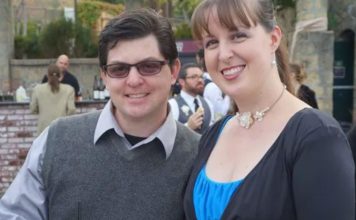If it’s true, as many psychologists say, that we often die the
way we live, then it can be no surprise that Gov. Gray Davis and
some of those who seek to replace him in the Oct. 7 recall election
are reverting to form.
If it’s true, as many psychologists say, that we often die the way we live, then it can be no surprise that Gov. Gray Davis and some of those who seek to replace him in the Oct. 7 recall election are reverting to form.
For Californians may now be witnessing the death throes of one or more political careers. The most obvious threat is to Davis, who can be ousted with a simple majority “yes” vote on the recall question.
Should he become the first American governor in 82 years to be thrown out at mid-term, a comeback by the 60-year-old Davis would be very unlikely.
He’s fighting this threat essentially the same way he waged many other campaigns over almost 30 years in public life, with a combination of outrageous claims about the opposition and transparent pandering to those he seeks as allies.
In the Davis department of egregious insults, there’s his spokesman’s claim that the recall is purely “the work of the Taliban wing of the California Republican Party,” which he claims is “trying to hijack California government.” But polls show at least 35 percent of recall petition signatures came from Democrats, tending to debunk the Davis claim.
This charge resembles the 1992 Davis TV commercials likening Dianne Feinstein to the New York hotelier Leona Helmsley, convicted of fraud and other offenses. Those spots came as Davis and Feinstein contended for the Democratic nomination for the U.S. Senate seat Feinstein now holds.
Voters can also count on copious exploitation of the 1970s-era weapons and car theft arrests of Republican Rep. Darrell Issa of San Diego County, plus recitations of resume exaggerations by the car-alarm mogul who financed the recall petition drive in hopes of taking Davis’ job. And there will surely be a rehash of charges made against 2002 opponent Bill Simon for allegedly running two savings and loans into the ground.
As Arnold Schwarzenegger considered pursuing his ballyhooed proto-candidacy, the Davis camp also readied TV commercials reviving all the womanizing allegations it raised while successfully scaring the actor away from the 2002 race.
But the Davis reversion to form goes deeper than mere negativism. No California politician of the last 50 years has pandered so blatantly to voter blocs and the special interests which financed his campaigns. The current Davis effort to fight off the recall looks no different.
Examples: Last year, Davis vetoed a bill giving Indian tribes the power to quash any development on land within 20 miles of a reservation, if they claimed the land has historical or cultural significance.
The Davis veto was absolutely justified, since there are no written records of long-ago Native American history. In effect, this bill could have given Indians carte blanche to claim vast portions of California as sacred them, with little or no proof. Some critics even said they might have used this privilege to extort money or concessions from developers in exchange for not making claims.
Now, with some of his previous donors tapped out or reluctant to put money into the anti-recall battle, Davis badly needs funding from the casino tribes. So this summer, he supports a slightly watered-down version of the same proposal, known as the “sacred sites” bill. Only time will tell how much cash that shift will produce for his campaign.
Similarly, Davis last year vetoed a bill allowing illegal immigrants to obtain state drivers licenses. But polls this summer indicated a high percentage of Latinos leaning toward dumping Davis. Was it an accident, then, when he sought out a Latino crowd and announced he will sign a new and expanded version of that bill “the moment it hits my desk?”
There’s more … The Davis anti-recall committee operated for months from the offices of the California Professional Firefighters, a public employee union that so far has devoted $168,000 in cash and services to fighting the recall. Expect Davis to sign a bill long sought by that union and police unions to force binding arbitration on cities and counties during labor negotiations.
Another police and fire union bill moving smoothly in Sacramento would double from one to two years the time injured police and firefighters can stay off the job and receive full pay tax-free. Bet on a Davis signature.
Further examples abound.
But Davis is not alone in reverting to form. There’s been the indecision of Schwarzenegger, who has often kept movie producers waiting for commitments, just as he did California Republicans. And there’s Simon, campaigning as awkwardly as last year, using more millions of his own dollars to make the same arguments that failed in his first try to unseat Davis.
Which means that if there is any hope for positive change and reform from the recall, it may have to come from the host of newcomers and relative newcomers in the running. For without significant campaign finance reform and other major political rule changes, even a successful recall would amount to no more than changing the deck chairs on the Titanic.











